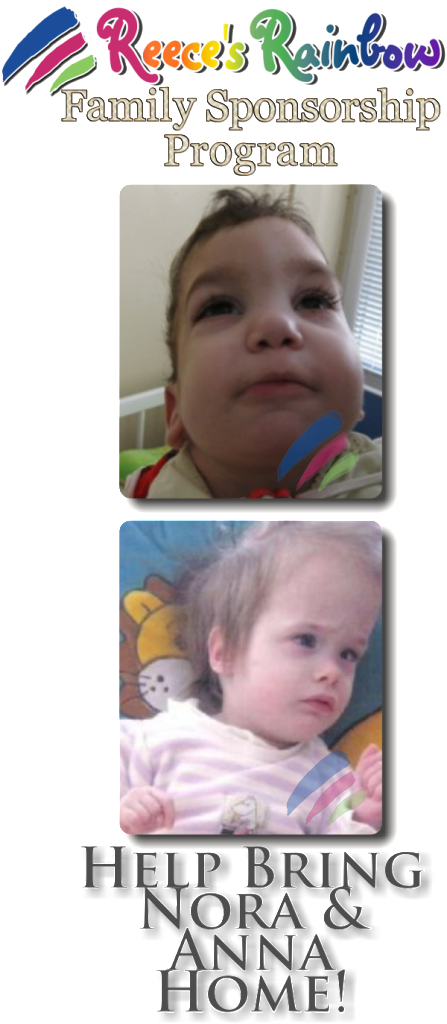The blogger, a very popular figure in the special-needs adoption community, posted this video of her adopted daughter:
The girl in the video is one of the survivors of the Pleven orphanage in Bulgaria. When she came home last year, she was severely malnourished, "literally at death's doorstep." She was 14 years old, and weighed 14 lbs. The Salems have done amazing work in rehabilitating her, supporting her transition to good nutrition, and showering her with love and nurturing. This video is, in fact, a testament to her physical and emotional healing.
Why, then, was I blocked?
My objectionable comment (which, I grant, allowed room for misunderstanding), was: "I know she is severely delayed, but isn't it still inappropriate to tickle a teenaged girl's chest?"
I need to clarify again, that I do not believe that there is any untoward intent on the part of the dad in the video. He sees her as a baby, and treats her as one. My question is not about his intent, but about her personhood. How do we differentiate between the ways in which seeing her as a baby is appropriate, and those in which it is not?
This video brings into focus a question which comes up not only in the adoption community, but in the larger disability community as well. To what extent do developmental delays warrant infantile treatment, and at which point should people -- even those who are severely delayed and limited -- be accorded more mature treatment?
This is seen in recent stories where young adults with Down syndrome have sought to get married. In a recent story (which I will link to when I find it...) a couple with Down syndrome had a symbolic wedding, only to go back to their respective group homes, since neither one offered them the possibility of living together as a married couple. Similarly, an adult woman with Down syndrome sued her own parents for the right to determine her own living arrangement. Frequently, such individuals are confronted with the objection, that since they are developmentally delayed, they should be treated as minors, according to a medically-determined "developmental age" which may be anywhere between 6 and 12 years old. Our society is slowly learning that "developmental age" is not so clear-cut.
This video appears to me to show a similar problem. This girl is developmentally a baby. She does not walk or talk, and her understanding of her surroundings is extremely limited. However, with the good nutrition she is now receiving, her body will probably go into puberty mode soon. It is possible that it is already doing so. What is appropriate in relating to an individual whose body might be ready to respond sexually, but the rest of whose development is still in infancy? Clearly they need to touch her to bathe and diaper her, but that is routinely done with adults in medical settings, with clear understanding as to what is and is not inappropriate touching. A child like Hasya in this video, however, presents like a baby, which is why the commenters were aghast that I would see anything questionable about this tickling. Perhaps they are right, and Hasya has not yet reached the point that body boundaries are appropriate. The question still stands: How do we decide? Where is that line?
Here, in contrast, is a video put out by a charity working to bring specialized therapists to Ukrainian orphanages and institutions:
Notice that the caretaker is tickling "Natasha" on her belly and armpits, but avoiding her chest entirely.
One might say that I have no business commenting on this, since I do not have a severely delayed, post-institutionalized child at home. I do, however, have 3 daughters, and I know that with each of them, we established body boundaries several years before any outward manifestation of puberty appeared. I know that tickling, say, an 8-year-old girl on her chest like that would feel very wrong.
Finally, one of the other commenters wrote:
Hehe I can just hear her saying "Papa, stooooop" while trying to catch her breath between giggles!! SO precious!!At which point, for a severely delayed child, does No start to mean No?










